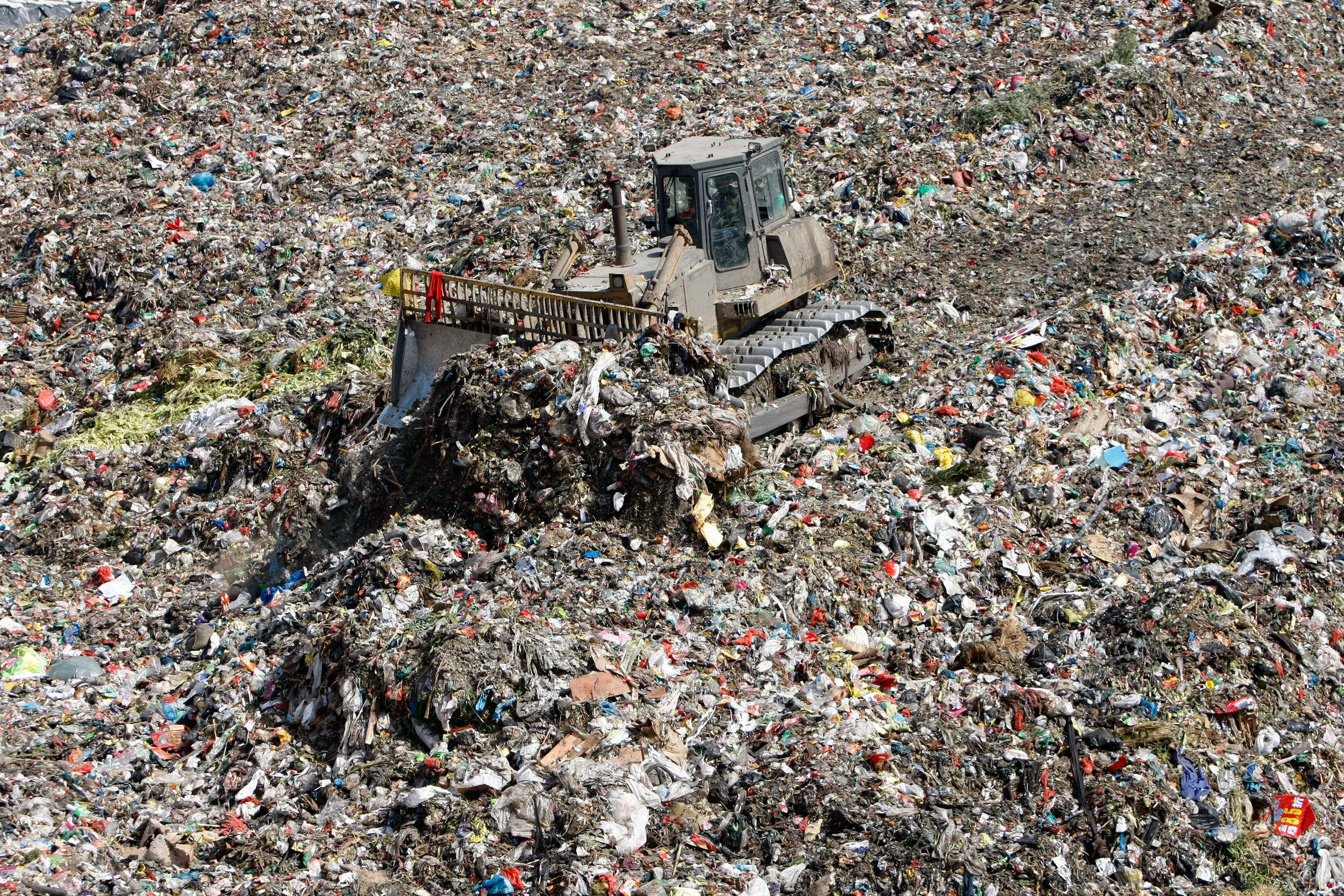July 09, 2019
Last week, protests shook one of China's most important cities as thousands took to the streets to defend their quality of life. But the disturbances weren't about political freedoms, extradition laws, or judicial transparency. This wasn't the prosperous former British colony of Hong Kong but the sprawling central Chinese metropolis of Wuhan. And the protests were about…garbage.
Residents of the 10 million-strong city oppose the government's plan to replace a landfill site with a new energy-producing trash incinerator. The authorities say it's a more environmentally (and olfactorily) friendly way to dispose of the city's growing mountains of refuse. But many Wuhanese, particularly those who live near the proposed site, fear it will spew toxic fumes into the sky over their homes and schools. They don't believe the secretive local government's assurances that the newfangled plant will be safer than the filthy ones China has used in the past. So when rumors spread that construction had started, thousands poured into the streets, braving riot police and undercover cops to make their point.
The problem of what do to with trash is hardly unique to Wuhan of course — it's been a big issue in other Chinese cities in recent years. The thing about lifting a billion people out of poverty is that wealthier people consume more stuff, which means they produce more garbage. As that garbage piles up, people expect their governments to safely and efficiently dispose of it. This is a growing challenge for many rapidly developing countries, and even for some developed ones (see: Naples, Italy).
The Wuhan demonstrators were careful to distance themselves from the political protests a thousand miles away in Hong Kong. But how governments deal with the trash is inherently political, because citizens don't have the means to make it go away by themselves. Garbage disposal requires complex systems to organize and oversee the collection, transport, and disposal of waste — and everyone can see and smell the result when government fails to get the job done. Recycling programs add a whole other layer of compliance and complexity. Getting these things right requires that governments be efficient and accountable.
In the Chinese case, the quality of life concerns of an increasingly affluent population — trash collection, environmental depredation, and poor infrastructure — may ultimately prove to be a bigger challenge to the Communist Party's opaque governance system than concerns about the lack of political rights.
More For You
As expected, the Supreme Court struck down the bulk of Donald Trump's sweeping “Liberation Day” tariffs as illegal … and almost nothing changed.
Most Popular
What's Good Wednesdays
What’s Good Wednesdays™, February 25, 2026
Sponsored posts
Small businesses at a crossroads
Chris, an Army veteran, started his Walmart journey over 25 years ago as an hourly associate. Today, he manages a Distribution Center and serves as a mentor, helping others navigate their own paths to success. At Walmart, associates have the opportunity to take advantage of the pathways, perks, and pay that come with the job — with or without a college degree. In fact, more than 75% of Walmart management started as hourly associates. Learn more about how over 130,000 associates were promoted into roles of greater responsibility and higher pay in FY25.
Ukraine's President Volodymyr Zelenskiy, Finland's President Alexander Stubb, Estonia’s Prime Minister, President of the European Commission Ursula von der Leyen and other European leaders visit memorial to fallen Ukrainian defenders at the Independent Square on the fourth anniversary of Russia's full-scale invasion, in Kyiv, Ukraine February 24, 2026.
Ukrainian Presidential Press Service/Handout via REUTERS
Somewhere in the Donbas region, Ukrainian soldier Artem Bondarenko says he hasn’t slept through the night in months as he defends Eastern Ukraine.
- YouTube
In the latest episode of Vladimir Putin and Xi Jinping's hit wellness podcast This Authoritarian Life, we learn how positive communication patterns can break negative cycles in our relationships -- especially our relationships with Iran, Syria, Venezuela, and Cuba. #PUPPETREGIME
© 2025 GZERO Media. All Rights Reserved | A Eurasia Group media company.
